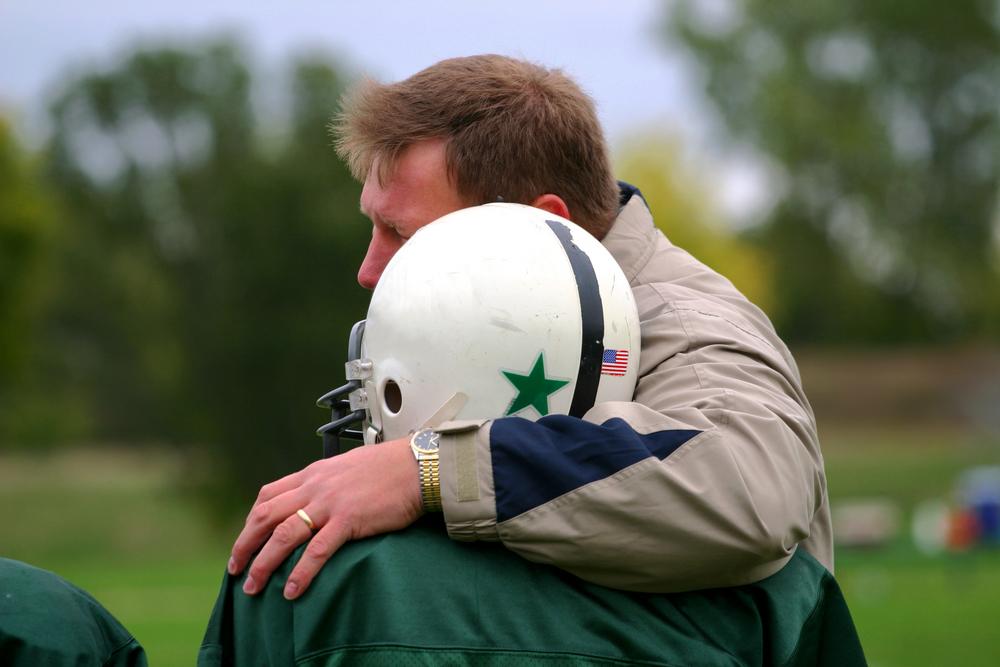 Content Warning: This article contains mentions of eating disorders.
Content Warning: This article contains mentions of eating disorders.
Self-care is important for everyone, from coaches to athletes to caregivers. However, self-care can go too far, especially when an athlete is using it to strive for optimized performance.
Here, TrueSport Expert and licensed clinical psychologist, Dr. Melissa Streno, is sharing the ‘red flag’ behaviors that can be indicators that the self-care you or your athlete is practicing has started to do more harm than good.
What is self-care?
Simply put, self-care is the practice of taking care of yourself by doing things that make you feel good physically and mentally. Streno describes it as the act of resting, recharging, and reconnecting in ways that are both intentional and authentic to you.
What are signs that self-care has gone too far?
The red flags around self-care tend to revolve around obsessive behaviors, says Streno. “These behaviors can lead to outcomes that are more detrimental or harmful than beneficial,” says Streno. “Unfortunately, it’s hard to spot these behaviors, since they often fall under the umbrella of ‘taking care of oneself’ and many societal norms actually applaud them.”
Here, Streno shares a few specific signs to watch for:
- Food obsession: For athletes who have histories of disordered eating or eating disorders, self-care around food can quickly morph into obsession with specific ‘healthy’ foods (also known as orthorexia). If the athlete can’t function well without their specific food/drink of choice and can’t consider any alternative, that’s a sign that their self-care has gone too far.
 Exercise obsession: While exercise and movement are common self-care activities, injured athletes or athletes suffering from overtraining can often take self-care involving movement too far, pushing their bodies when what they really need is recovery time.
Exercise obsession: While exercise and movement are common self-care activities, injured athletes or athletes suffering from overtraining can often take self-care involving movement too far, pushing their bodies when what they really need is recovery time.- Sleep obsession: Self-care certainly includes getting enough high-quality sleep, says Streno. But being too hyper-fixated on sleep can ironically lead to worse sleep outcomes. Thanks to sleep trackers in many wearables, it’s become easy to fixate on sleep, so much so that a new term has been coined by sleep experts to explain it: orthosomnia. Streno also adds that balance is key here. As young people with busy lives, sometimes there will be nights where self-care by spending time with friends supersedes the need to have the perfect nighttime routine.
- Comparison: Thanks to social media, athletes feel constant pressure to do things a certain way, even self-care. Unfortunately, as Streno notes, this not only can cost an athlete time and money, but it also creates a situation where the athlete is no longer practicing self-care that is authentic to them.
Balance and Moderation are Key
If you’re concerned that the self-care you or your athlete has been practicing falls into one of these ‘red flag’ behaviors, start with being curious rather than judgmental. Streno suggests asking yourself or your athlete: “What is the outcome of the self-care that you are looking for? Does this version of self-care get you to that point?”
“Many of us need to find a place of balance and moderation, where all food is good food, we listen to our bodies in terms of activity and exercise levels, and we find joy in our activities.”
Another sign Streno says to look out for is when the word ‘should’ is used to described any kind of self-care, since that tends to indicate a lack of authentic interest.
Identify Optimal Self-Care
Self-care also doesn’t require a specific time quota each day or week, and nor should it, says Streno. “Because moderation and balance are key, you ideally have a sustainable and consistent self-care practice, but that doesn’t mean it needs to be rigid, excessive, or obsessive,” she explains. “Make the time when your schedule allows and block off that time on your schedule but be flexible with what type of self-care you’re practicing.”
________________________
Takeaway
Self-care is important, but athletes, coaches, and caregivers need to be careful that they don’t take it too far. Behaviors like obsessing over ‘healthy’ foods or ‘perfect’ sleep, as well as things like over-training, can do more harm than good. Self-care through moderation and balance should improve overall physical and mental well-being.



